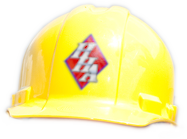Summer is much more than just the transitional period between spring and autumn. The summertime is known for its pleasant weather, sunlight, time spent by the water, outdoor activities, and overall enjoyment. However, many popular summertime activities contribute to increased air pollution levels. And, as the hot weather and summertime weather last longer each year, it's critical to understand how to engage in your space for the optimum indoor summer air quality.
Air quality decreases during hot weather because the heat and sunlight cook the air along with all the chemical compounds that are present. This chemical soup combines with the nitrogen oxide emissions present in the air, creating ground-level ozone.
The changing of seasons results in warmer weather and lower levels of precipitation. High temperatures and extreme heat raise levels of pollutants like ozone and particulate matter. Air quality advisories almost always accompany hot weather, and our increased electricity usage to keep things cool during high heat episodes only contributes to greater emissions and primary pollution.
Researchers have also found that lower precipitation levels allow polluted air to stay in one area longer, leading to worse air quality- very similar to a poorly ventilated indoor space.
Additionally, summer activities like fireworks and bonfires have a direct impact on air quality. With the summer’s condensation of holidays and accompanying vacations translate into higher levels of pollution.
“So what!?” you say, “I’ll just spend the season inside!” Well.. not so fast.
Even spending more time outdoors among allergens and pollutants, or with windows and doors open for the summer breeze, contributes to increased indoor air pollution.
The use of your home’s air conditioner is not averse to errors or worries. Air conditioning recirculates indoor air, it doesn't bring fresh air outside as many presume. Equally important, more A/C usage means more air is being recirculated, which in turn also means you're circulating contaminants throughout your space. That's why you need indoor air quality (IAQ) solutions in addition to your home's HVAC system.
Here are some tips to improve your life/energy use both inside and outside your home this summer
To limit vehicle use, take public transportation or carpool.
Avoid overuse of gas-powered lawn equipment and refuel your cars at night to prevent escaping gas vapors from being burned into smog by sunshine.
Increase the temperature of your air conditioner to help minimize the machine’s output.
Clean your condenser unit or have it professionally serviced by Harbin Heating and Air technicians!
Change your air filter.
Seal any leaks in doors and windows.


